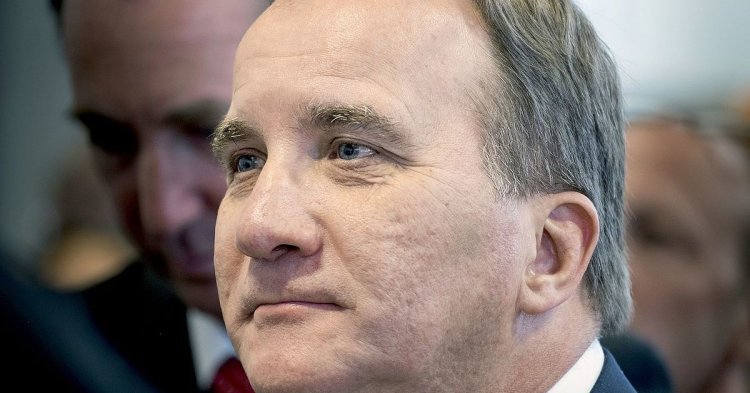Imagine this scenario: you see a group of Swedish friends having a barbecue, in full view of all the neighbours. There are ten of them, laughing, drinking good beer, without keeping more than a metre away from each other. The Danish watch them, shocked, from the other side of the Øresundsbron, the Norwegians crane their necks over their border in astonishment, while the Finnish cannot believe their eyes from across the Baltic Sea and the Gulf of Bothnia.
Indeed, it has been increasingly talked about: while Norway, Denmark and Finland have employed the same strategy, quarantining their population in their homes, closing public places and encouraging working from home, Sweden stands alone. It was only beginning on 18th March that this Scandinavian country decided to recommend social distancing, while only closing universities, neither schools nor nurseries. Furthermore, the Swedish government advised its residents to carry on keeping fit, with a short daily walk, or even by going to the gym.
Norway began lockdown measures and social distancing on the 12th March, closing all non-essential businesses, while Denmark and Finland introduced these same instructions on the 13th and 23rd of March respectively. Many have spoken up against the Swedish ‘carelessness’, including the Swedish scientific community (see below). Yet, their Scandinavian neighbours were not exactly swift to criticise: whether Norwegian, Danish or Finnish, they all thought that Sweden was simply testing another method to contain the epidemic. The Norwegian minister declared that only history would tell which method has been the most effective (and neither the definition of ‘effective’ nor its criteria are yet to be decided).
Let us begin with statistical dependability, in the same way Jérôme Salomon (an epidemic specialist) presents the figures in France every evening: what is the number of recorded cases in Sweden and in its neighbouring countries? On the 13th April, Norway had 6,551 cases, 6,318 in Denmark, 3,064 in Finland… but 10,948 in Sweden. It is true that Sweden is the Nordic country most affected by the virus, almost four times as much as Finland. On the 12th April 2020, Sweden passed the significant benchmark of 10,000 cases, while the increase was much less intense in the other countries.
In addition, on the 9th April, Norway had 105 deaths, Denmark 237, Finland 40 and 687 in Sweden. By the 13th, the figures rose to, respectively, 134; 285; 59 and 919. Therefore, when we look at these figures on COVID-19 mortality, we can understand reservations and criticisms of the Swedish strategy. It is true that the mortality rate was almost 8.9% on 12th April, whereas it was only 1% in Finland.
What are Sweden’s reasons for not taking the same measures as its neighbours? What do the Swedes think about it? Is this lack of lockdown criticised?
No lockdown in Sweden: what are the reasons given by the prime minister Stefan Löfven’s government?
Stefan Löfven announced on the 22nd of March, during a televised speech, the recommendations made by Swedish scientists, formulated from only one perspective: slow the spread of the virus rather than avoiding contagion - the latter being considered impossible.
The Swedish and international media have been puzzling over the choice not to recommend social distancing. Several reasons are put forward, including supporting the national economy to limit economic damage for shopkeepers, tradespeople and businesses. This reason caused anger in the foreign press, which considered this a purely neoliberal decision, not befitting a coalition government of social-democrats.
Another reason is the fear of social inequalities that would come from closing primary schools. The Swedish have a lot of faith in their schools and respect their role as the institutions that establish equality and social cohesion. In addition, the carers on the frontline needed their children to be taken care of, in order to not have to choose between family and work.
In Sweden’s own words: what do they think of the situation in their country?
To better contextualise the lack of lockdown, I have decided to carry out an informal survey, among approximately fifteen young Swedish students in four Swedish towns (Stockholm, Uppsala, Lund and Malmö). The question was simple and unambiguous: “what is your point of view on the measures taken by the Swedish government to contain the COVID-19 epidemic?”.
Their responses can teach us two things. Firstly, only two people were torn, or did not have any particular opinion on the topic. They were sensitive to the government’s statements, which they described as the exact reflection of recommendations of Swedish scientists: therefore they have confidence in their leaders’ choices and in their strategy of herd immunity. However, their doubts are growing, when they see the deaths increasing in the ‘aldreboende’, Swedish care homes. These doubts are also reinforced by reading foreign media, which is highly sceptical of the non-lockdown decision.
The second lesson, which is the most important one, is that every response mentioned ‘personal responsibility’, as a necessary factor of slowing the spread of the virus. Each person said it in their own words: because they are all being careful to go outside less, respect distances and comply with (respiratory) hygiene guidelines, lockdown is unnecessary. It would only impose a restriction on liberty of movement, whose effect, though, is already achieved of their own volition.
The pictures of Swedish people in restaurants have circulated around the world and could illustrate a ‘nonchalance’, an ‘inconsiderate recklessness’. They are contradicted, however, by reports from Lund, that indicated the Swedish are not hanging around in public places, and are instead eating their fika and other meals as takeaways, to support small businesses. Finally, although everyone admits they are satisfied with the fact that they are not being quarantined, they applaud the efforts of their healthcare workers, and are reassured to know that the vulnerable are definitely quarantined in their homes.
Prompted by curiosity, I looked up the reaction of French expats on various Facebook groups. They are obviously much more critical: they all applaud the Swedes’ spontaneous effort to self-quarantine, but one particular measure angers them. Only Swedish universities are closed (which include students of all ages; the Swedish can go back to study whenever they want) and not schools. This is an incomprehensible decision for the expatriated French population, deemed very unreasonable - in France, children are home-schooled. Some have even decided to take their children out of school. They have to lie and get hold of a certificate saying a member of their family has coronavirus, or alternatively, there is, even, the risk of expel for the child.
By contrast, the Swedish are favourable of this measure, for their attitude stems from the principle that children should keep learning, while being protected - after all, they are considered to be the least vulnerable.
Towards strengthening measures? Delving into the criticism of this position
The scientific community has become divided in Sweden about the measures that should be taken: some continue to advise a non-lockdown, like the state’s own epidemiologist, Anders Tegnell, while more than 2,300 of them have signed a petition at the end of March asking for a universal lockdown in their country, including Cecilia Soderberg-Naucler, immunologist at the Karolinska Institute, in Stockholm.
These 2,300 researchers confirm they are relying on facts and figures: the mortality curve and the number of cases reported daily are growing, like other Nordic countries, but the numbers are much higher, as shown above. This has therefore prompted them to sign the petition calling for a lockdown. Yet, here we are on 14th April when this article was originally published, and it has gone unheeded, while other countries like Finland are preparing their strategy for rolling back lockdown. This petition has sown doubt among Swedes, even though they remain confident in their government’s ability to manage the crisis. After all, Sweden is the country of compromise, negotiations and consensus: what could this lack of harmony mean?



Follow the comments: |
|
